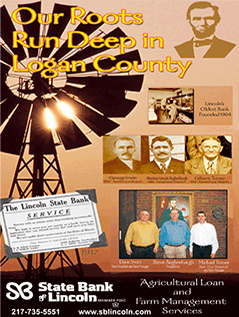|
 The hearing in an ornate century-old building in Denver, Colorado,
is the first at a regional U.S. appeals court since a Supreme Court
ruling last June forced the federal government to extend benefits to
same-sex married couples in states where gay marriage is legal. The hearing in an ornate century-old building in Denver, Colorado,
is the first at a regional U.S. appeals court since a Supreme Court
ruling last June forced the federal government to extend benefits to
same-sex married couples in states where gay marriage is legal.
In cases since, eight federal judges have used that decision to rule
in favor of same-sex couples.
This new round at the next tier of the federal bench could alter
that trend as cases move closer to resolution at the ideologically
divided U.S. Supreme Court.
Unlike the landmark ruling on federal benefits, the cases making
their way through the courts now raise a more fundamental question:
Does the U.S. Constitution extend to same-sex couples the same right
to marry opposite-sex couples have?
Hearing Thursday's case is a panel of the 10th U.S. Circuit Court of
Appeals consisting of two Republican-appointed judges and one
Democratic appointee.

RAPID PROGRESS THROUGH COURTS
The legal fight over same-sex marriage has proceeded rapidly. In
2003 Massachusetts' top court declared a state constitutional right
to same-sex marriage, and the next year Massachusetts became the
first of the 50 states to begin issuing licenses to gay couples. A
total of 17 states plus the District of Columbia now permit same-sex
marriage; 33 states do not.
This new battle testing whether the U.S. Constitution covers gay
unions appears to be moving even faster. The 10th Circuit will hear
a challenge to an Oklahoma same-sex marriage ban on April 17 and,
separately, the Richmond-based 4th U.S. Circuit Court of Appeals in
May is scheduled to take up a Virginia same-sex marriage ban.
By the end of the year the Supreme Court is likely to face several
appeals from lower courts, including from the 10th Circuit, testing
a nationwide right to same-sex marriage.
Before the judges on Thursday is a law adopted by Utah voters in
2004 defining marriage as exclusively between a man and a woman.
Three couples, one gay and two lesbian, challenged the law. The lead
plaintiffs are Derek Kitchen and Moudi Sbeity, who were denied a
marriage license by the Salt Lake County clerk's office last year.
A decision in the case, and in the Oklahoma dispute, could take
months.
The Kitchen case started in March 2013 and was among a handful of
lawsuits seeking marriage rights pending when the Supreme Court last
year granted federal tax and other benefits in U.S. v. Windsor. Most
of the estimated 50 lawsuits now working their way through the
courts were filed since.
[to top of second column] |

CONSTITUTIONAL QUESTIONS
In December, U.S. District Judge Robert Shelby struck down the Utah
law, saying it violated the U.S. Constitution's guarantees of equal
protection and due process of law. Relying on the high court's
reasoning favoring gays and lesbians, Shelby wrote that Utah's law
known as Amendment 3 "places same-sex couples in an unstable
position of being in a second-tier relationship.
Utah's appeal will be argued by Gene Schaerr, among a group of
private lawyers hired by the state. He is a former law clerk to
Supreme Court Justice Antonin Scalia, a conservative who last June
bitterly protested the 5-4 decision in U.S. v. Windsor.
In Schaerr's brief to the 10th Circuit, he argues the sociological
value of opposite-sex couples, emphasizing "that moms and dads are
different, not interchangeable, and that the diversity of having
both a mom and dad is the ideal parenting environment."
Representing the gay couples and urging the 10th Circuit to affirm
Shelby's decision will be Peggy Tomsic, a lawyer in a Salt Lake City
firm. Her team is being aided by the National Center on Lesbian
Rights, which like the ACLU and Lambda Legal have been coordinating
much of the new nationwide litigation.
More than 200 groups and individuals have submitted "friend of the
court" briefs, hoping to influence the judges.

The case is Kitchen, et al v. Herbert, et al in the 10th U.S.
Circuit Court of Appeals, No. 13-4178
(Reporting by Joan Biskupic; editing by Howard Goller and Grant
McCool)
[© 2014 Thomson Reuters. All rights
reserved.] Copyright 2014 Reuters. All rights reserved. This material may not be published,
broadcast, rewritten or redistributed. |